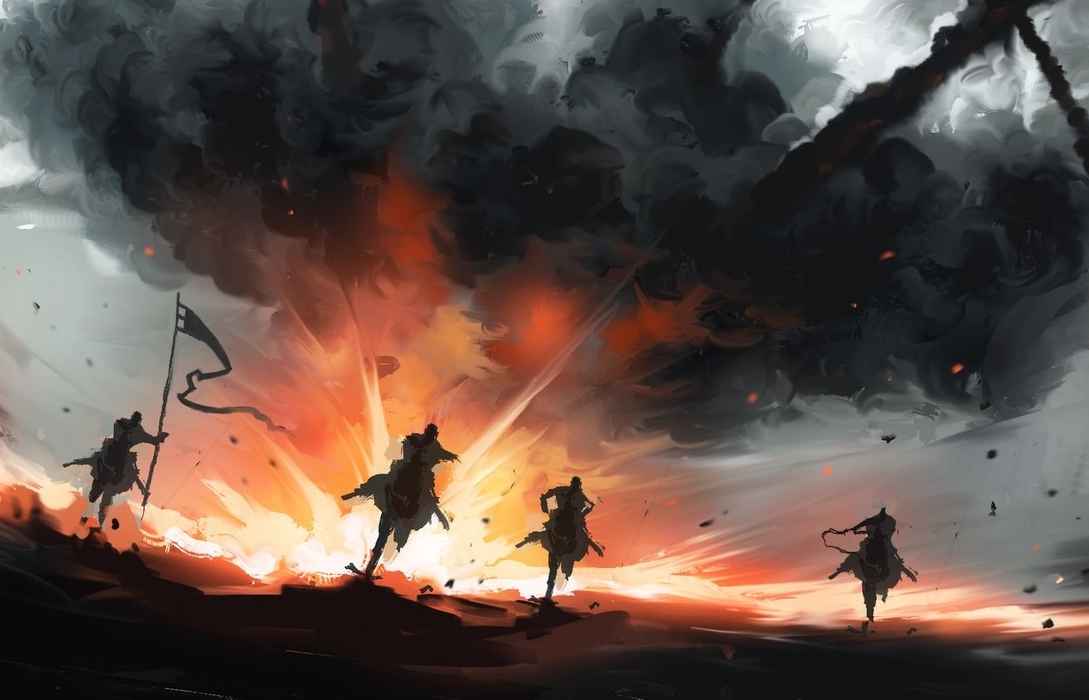Difference between revisions of "Melf's Minute Meteors (spell)"
Tao alexis (talk | contribs) |
Tao alexis (talk | contribs) |
||
| (6 intermediate revisions by the same user not shown) | |||
| Line 1: | Line 1: | ||
| − | '''Melf's Minute Meteors''' (/''my-NOOT''/) | + | [[File:Melf's Minute Meteors (spell).jpg|right|560px|thumb]] |
| + | '''Melf's Minute Meteors''' (/''my-NOOT''/) is a spell that summons a group of small meteoric stones. Each stone deals 1-4 [[Damage (hit points)|damage]] to a target creature within the area of effect. The caster can distribute the stones among targets as they wish, with a maximum of '''three''' stones hitting a single target. All stones take up to '''six''' seconds to fall. | ||
{{Spelltable | {{Spelltable | ||
| Line 11: | Line 12: | ||
}} | }} | ||
| − | + | Due to the short interval between the spell's [[Spellcasting|discharge]] and the stones striking their targets, the meteors are magically summoned approximately 30 to 60 feet above their intended targets. Consequently, this spell can must be cast in '''outdoor settings''' where the possibility of meteoric impact exists. | |
| − | There | + | There's no saving throw against the damage, and the speed of the effect makes it nearly impossible for most creatures to seek shelter or use shields in defense. However, individuals wearing [[Ring Mail|ring mail]] or superior metal [[Armour List|armours]] reduce the damage by 1 point of damage for each meteor that hits. |
| − | Once | + | Once the meteors strike, they shatter and vanish, leaving no trace. |
== Origin == | == Origin == | ||
| − | [[Melf Ithilvandil]], also ''Moonstaff'', was an Elvish archmage who lived during the collapse of [[Old Ulthua]] and is believed to have died at the battle of [[Silver Lake]] in 501 BCE. The arcane texts containing his spells defied interpretation for a thousand years, until much was resolved by [[Simon Magus]]. He is often called the "Father of Magic," as comprehension of Ithilvandil's works | + | [[Melf Ithilvandil]], also known as ''Moonstaff'', was an Elvish archmage who lived during the collapse of [[Age of Colyan-Ar|Old Ulthua]] and is believed to have died at the battle of [[Silver Lake]] in 501 BCE. The arcane texts containing his spells defied interpretation for a thousand years, until much was resolved by [[Simon Magus]]. He is often called the "Father of Magic," as the interpretation and eventual comprehension of Ithilvandil's works is believed to be the basis for modern spellcasting. |
| − | + | [[Category: Magical Spells]] [[Category: Spells Limited to the Outdoors]][[Category: Reviewed]] | |
| − | [[Category: Magical Spells]] | ||
Latest revision as of 16:58, 2 October 2023
Melf's Minute Meteors (/my-NOOT/) is a spell that summons a group of small meteoric stones. Each stone deals 1-4 damage to a target creature within the area of effect. The caster can distribute the stones among targets as they wish, with a maximum of three stones hitting a single target. All stones take up to six seconds to fall.
| Range | 10 ft. per level |
| Duration | 1 round |
| Area of Effect | 25 ft. radius circle; 1 meteor per level |
| Casting Time | 2 rounds |
| Saving Throw | none |
| Level | mage (3rd) |
Due to the short interval between the spell's discharge and the stones striking their targets, the meteors are magically summoned approximately 30 to 60 feet above their intended targets. Consequently, this spell can must be cast in outdoor settings where the possibility of meteoric impact exists.
There's no saving throw against the damage, and the speed of the effect makes it nearly impossible for most creatures to seek shelter or use shields in defense. However, individuals wearing ring mail or superior metal armours reduce the damage by 1 point of damage for each meteor that hits.
Once the meteors strike, they shatter and vanish, leaving no trace.
Origin
Melf Ithilvandil, also known as Moonstaff, was an Elvish archmage who lived during the collapse of Old Ulthua and is believed to have died at the battle of Silver Lake in 501 BCE. The arcane texts containing his spells defied interpretation for a thousand years, until much was resolved by Simon Magus. He is often called the "Father of Magic," as the interpretation and eventual comprehension of Ithilvandil's works is believed to be the basis for modern spellcasting.
